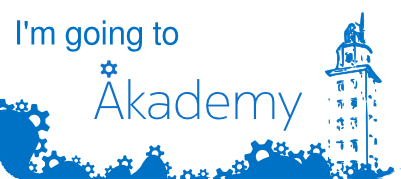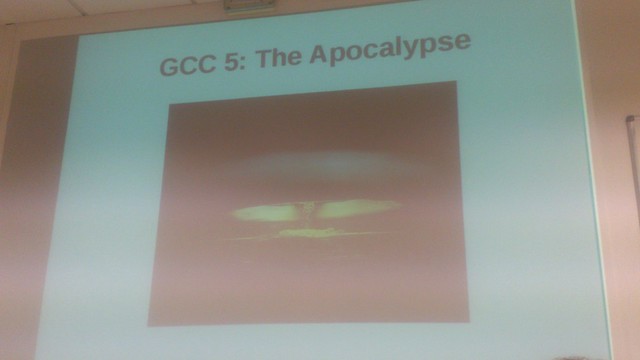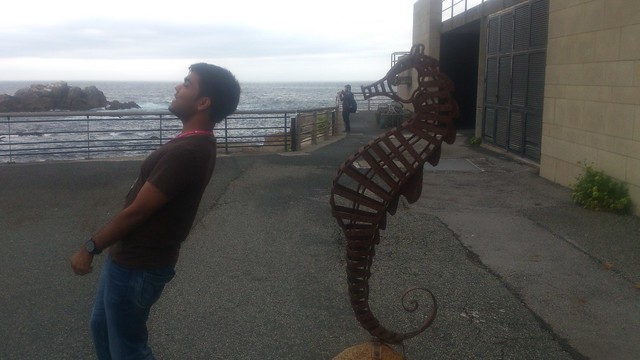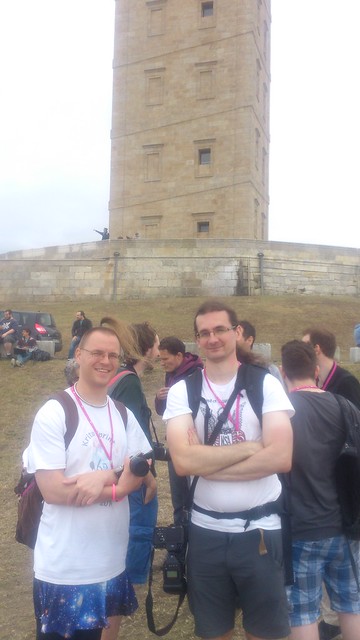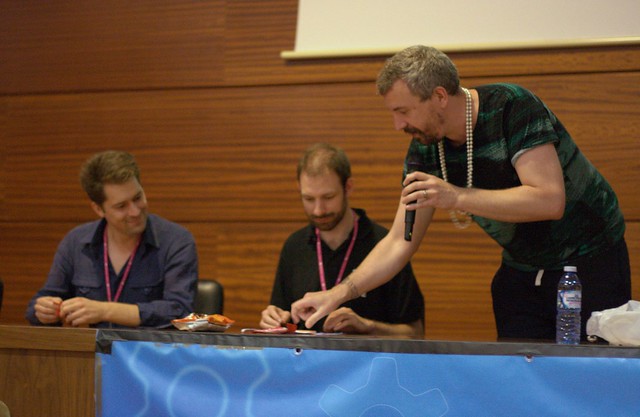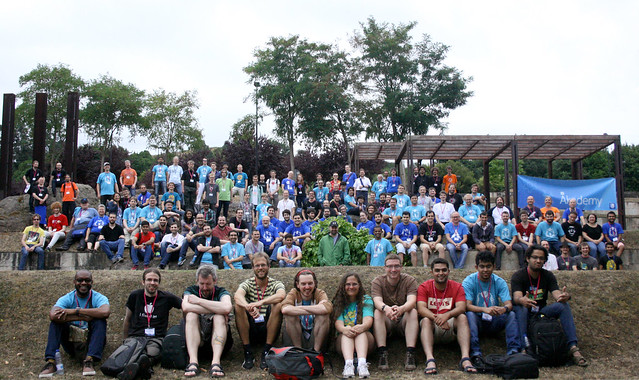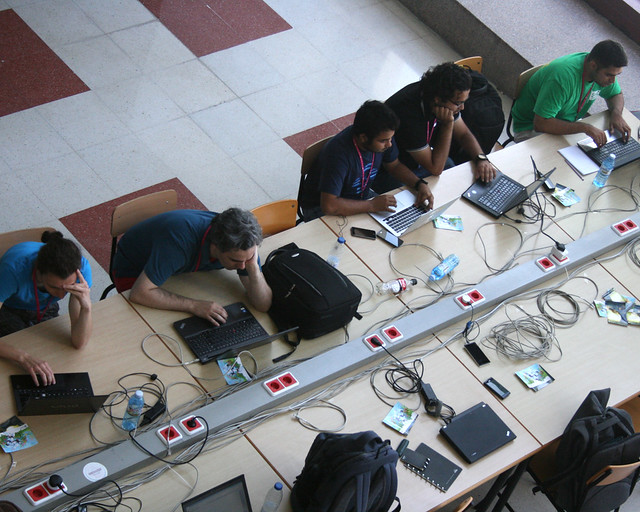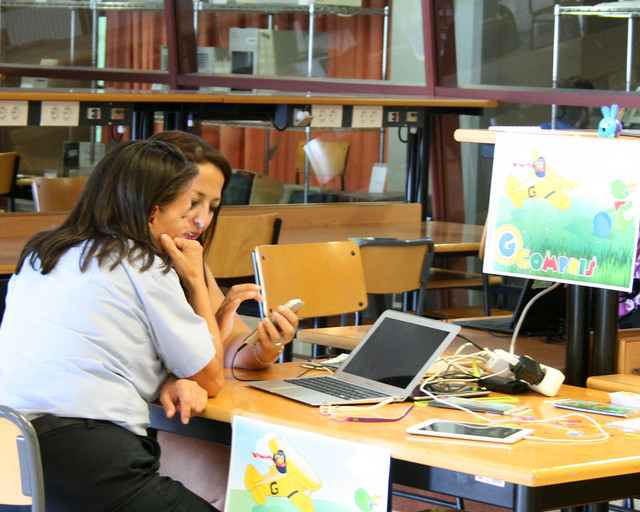I always say the best way to tour a city is from the water
Akademy Day Trip
Akademy A Coruña Photos
HJens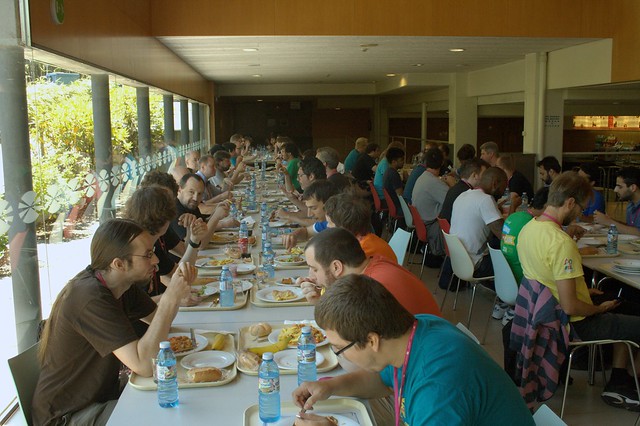 Lunch Time
Lunch Time
Jens describes Skittles and Doritos
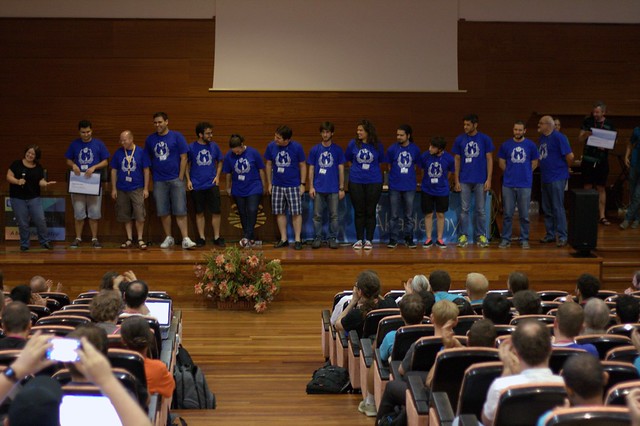 The wonderful organising team!
The wonderful organising team! 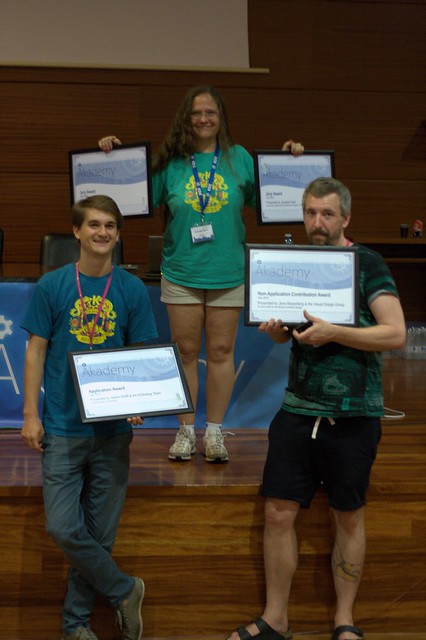
Elite Kubuntu developer Scarlett wins an Akademy Award! 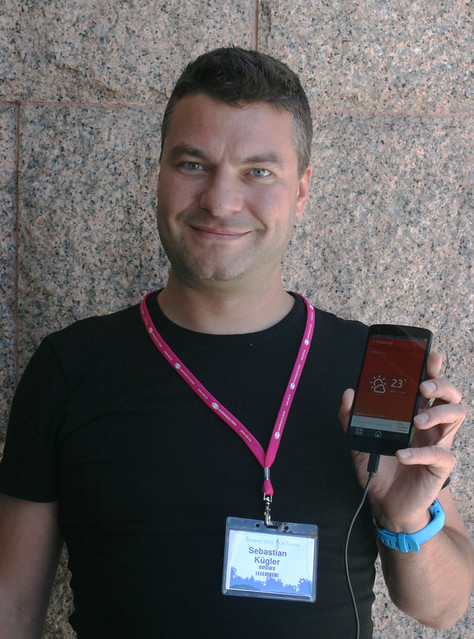
Sebas shows off Plasma Mobile phone with a look that suggests he wants world domination by next year
hacking area
The opening ceremony to remember absent friends
Plasma Mobile Images by Kubuntu

Yesterday we revealed the project we’ve been working on for the last few months, Plasma Mobile and images of it on Kubuntu.
KDE has been trying for years to get Plasma working on different form factors with mixed success, so when I first started on this I was pretty intimidated. But we looked around for how to build this and it turns out there is software for it just lying around on the internet ready to be put together. Incredible.
It got very stressful when we couldn’t get anything showing on the screen for a few weeks but the incredible Martin G got Wayland working with it in KWin, so now KDE has not just the first open mobile project but also one of the first systems running with Wayland.
And with Shashlik in the pipeline we are due to be able to run Android applications on it too giving us one of the largest application ecosystems out there.
The question is will there be traction from the community? You can join us in the normal Plasma ways, #plasma on Freenode and plasma-devel mailing list and #kubuntu-devel to chat about making images for other devices. I’m very excited to see what will happen in the next year.
Mi Charla
Los transparencias de mi presentación de ayer a Akademy-ES es ahora en mi página web de charlas.
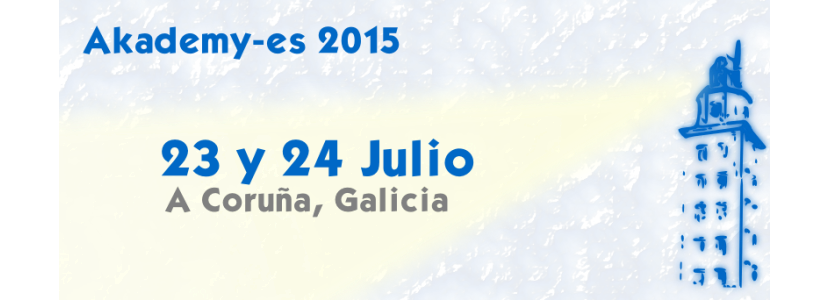
Voy a ir Akademy-ES
Voy a ir Akademy-ES el jueves para dar una charla se llama “Plugfest Conferencia Protocolos”. Es un revisión de esta conferencia an Marzo y un corto versión de mi charla se llama “interoperabilidad del escritorio Linux”.

